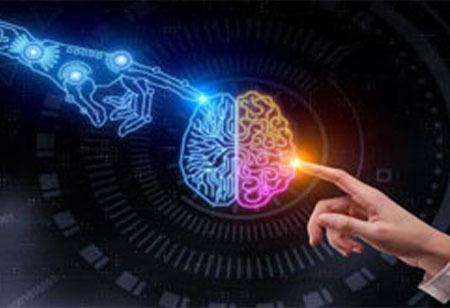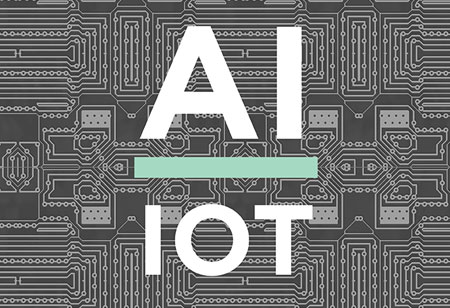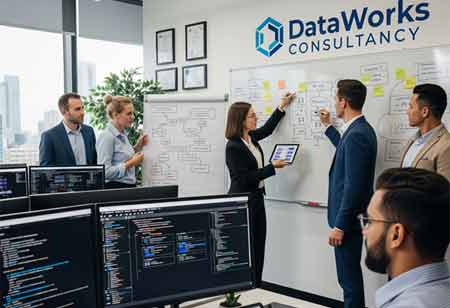THANK YOU FOR SUBSCRIBING
AI to Be The Next Big Thing; Pointers for CIO's to Adopt AI
In a survey conducted among over 3000 CIO's based across 89 countries, it was found that AI took the top spot among technologies with the highest capability to disrupt the existing models of business and 37 percent of them have already

By
Apac CIOOutlook | Monday, October 28, 2019
Stay ahead of the industry with exclusive feature stories on the top companies, expert insights and the latest news delivered straight to your inbox. Subscribe today.
In a survey conducted among over 3000 CIO's based across 89 countries, it was found that AI took the top spot among technologies with the highest capability to disrupt the existing models of business and 37 percent of them have already deployed AI into their business models or will do in the near future
Fremont, CA: Businesses of all kinds are rapidly trying to adopt robotic process automation into their existing business models. The time has come for CIO's to make a decision. They can either accept the changes brought in by the advent of Artificial Intelligence (AI) or perish along with other companies who failed to cash in on this opportunity. AI has become an integral part of our day to day lives and has also crept into almost every aspect of a business.
AI may be a digital process, but it is also responsible for garnering a professional environment and fueling the digital drive. It is a common misconception that AI is here to replace human labour. In truth, AI only enhances human labour by reducing the time and effort required to complete a task. It improves the efficiency of work and work rate. In doing so, AI sets a certain standard of technical knowledge in the organization. Workers need to develop specific skill sets in order to be able to operate AI-powered devices.
The amount of investments flowing into the development of AI technology is immense. In 2019, global AI investments stood at USD 24 billion, and it is expected to reach USD 77 billion by the year 2021. The adoption of AI technologies in ASEAN countries is also gaining a lot of traction. Singapore's recent investment of USD 500 million to develop AI systems is a statement of intent by the Singapore government to establish Singapore as a powerhouse on this frontier.
In a survey conducted among over 3000 CIO's based across 89 countries, it was found that AI took the top spot among technologies with the highest capability to disrupt the existing models of business and 37 per cent of them have already deployed AI into their business models or will do in the near future. This is an example of how quickly AI is encroaching into the traditional models of business and gaining a strong foothold. Companies have now realized the value of AI and how many opportunities it has brought along with it. In some cases, it has even opened an entirely new revenue stream for the business. However, adoption of AI into a business is not an easy task.
Here are 6 pointers for CIO's to keep in mind while incorporating AI into their business models.
Building the Infrastructure
When it comes to the adoption of any new technology, it comes with a prerequisite of an upgrade of infrastructure. Once the new support is in place, and AI is deployed, the CIO's need to step in and play the role of translators between the technology and the business. They need to be able to speed up the working staff with the new technology and the changes it brings along with it. Next, they need to plan the path forward where the business and the technology go hand in hand. It is crucial that CIO's position themselves as a digital business enabler, and not just a technology provider.
Bridging the Gap
When a cutting edge technology is implemented, it often tends to make the existing objects look old and obsolete. The current software may not be compatible with AI, or even the hardware may be too outdated. It is the role of the CIO's to bridge this gap and ensure smooth functioning of the business. This can be done by hiring developers, data scientists, and solution architects to update the existing technology or suggest the best options for an upgrade. This may sound budget heavy and can drain the company's capital very quickly. However, by building partnerships with startups or academic institutions, a budget-friendly solution can be found to bridge this gap.
Emerging Risks with AI
One of the significant challenges that AI brings along with it is data silos. In most cases, enterprises are dependent on existing data, and this tends to derive the value of AI. Companies have been running using conventional methods that include the use of disconnected tools, causing delays in projects. This interferes with the iterative nature of AI. CIO's need to step in here and consolidate all the data into one platform, modernize their IT infrastructure, and provide a collaborative work environment where different departments communicate with each other on a regular basis.
Any kind of technology today is critically scrutinized with issues like data privacy and ethics. AI can process large amounts of data at once and make observations from it at a rapid rate. While this may seem like an advantage to many companies, it is also a threat at the same time. Any amount of automation can tend to raise questions of data privacy, and AI can be seen as a process that involves over automation. To avoid exploiting of any kind of personal data, AI needs to be checked upon, and the CIO's must have controls in place that will safeguard their customers.
Reinventing Organizational Roles
Applying AI to your business can instigate rapid growth and transform their mode of operations. This provides CIO's a massive opportunity to change their roles within the organization. CIO's carry deep technical background and knowledge and must take advantage of these opportunities. They must take charge of the whole implementation process of AI and control all proceedings from start to finish. This includes laying out a proper plan after adequate research work. They must also ensure that all lines of business have a smooth adoption and integration of AI.
Continued Investments
For any organization to be productive, there needs to be a chain of command and efficient communication between teams. Any technology that is lagging behind must be focused upon by the CIO's and adequate resources should be deployed in these areas to speed them up to date. This involves making investments in technologies of the future. Even before a technology becomes up and running in the market, CIO's should be ready with a plan on how to implement it into their business. There is a vast number of technologies emerging every day and organizations must keep up to date with these. In most cases, these technologies enhance the performance of existing ones. In the case of AI, CIO's should be on the lookout for new technologies that can improve the performance of the AI systems in place, improving organizational capabilities.
Retrain, don't Rehire
One of the most common notions among organizations is that AI will bring automation to a lot of processes, leading to a lack of jobs for humans. To the contrary, any kind of automation requires significant amounts of manual overseeing in order to be implemented smoothly. AI's will enable a more efficient workforce without delays and disruptions. The combination of AI and human workforce enhances the quality and quantity of output. One thing to remember is that CIOs need not always hire new staff that is compatible with AI-driven technology. Training your existing employees tends to increase your output further as it saves you the time spent on getting new staff adjusted to the organizational structure.





